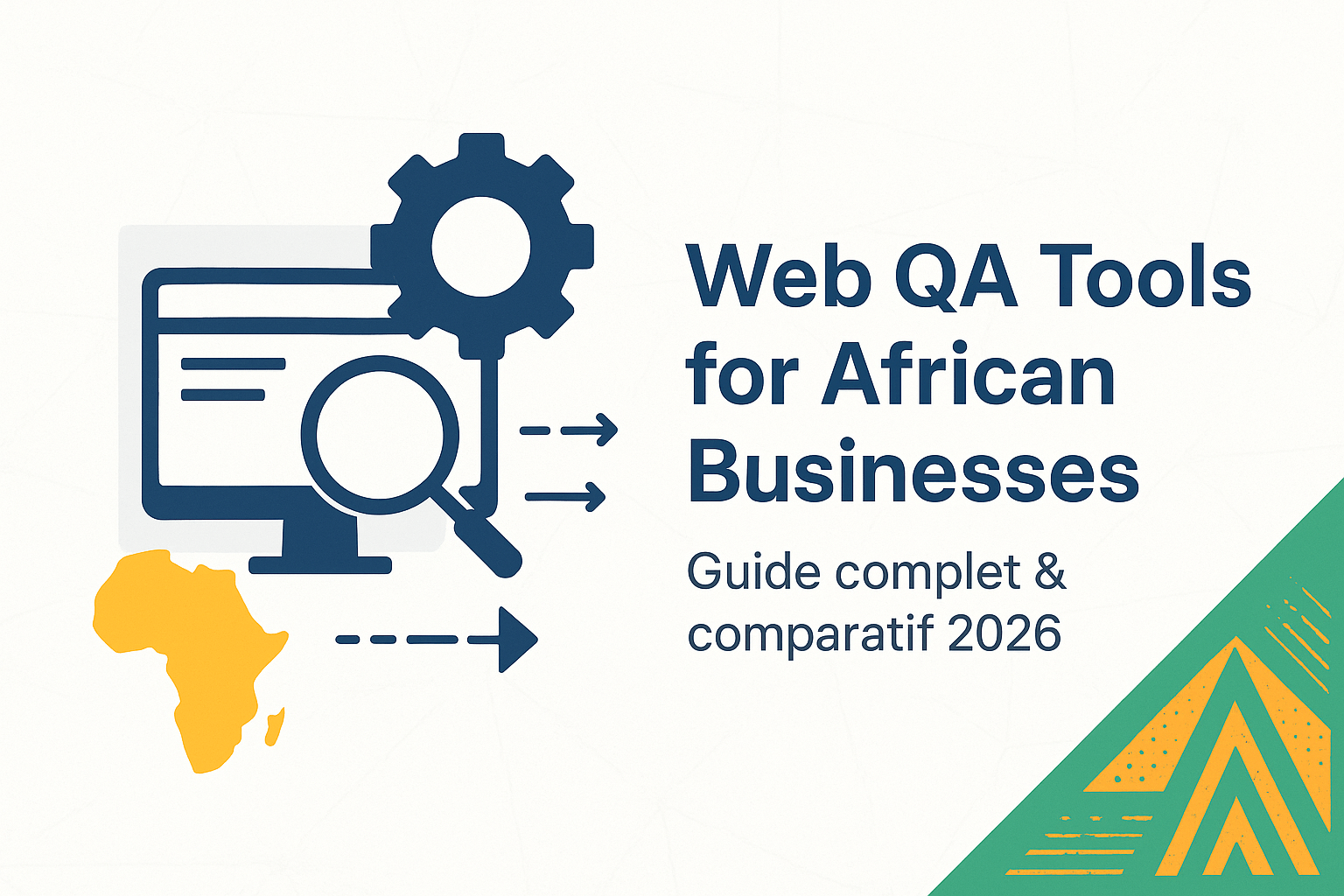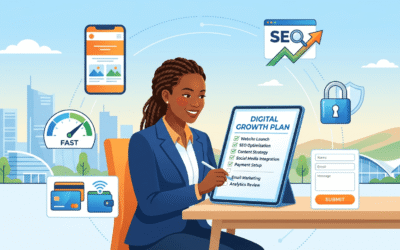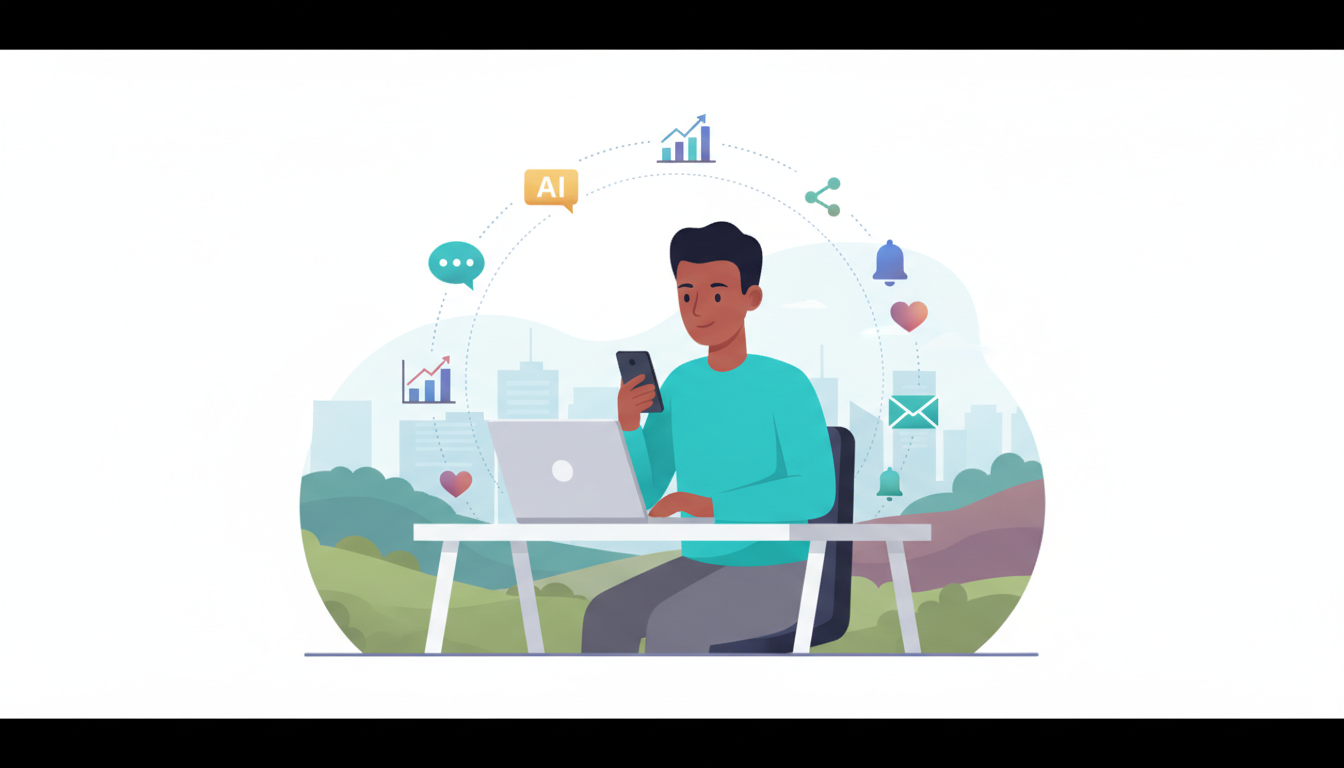Your website just went live. It looks beautiful. You’re proud. Then the emails start flooding in: “The contact form doesn’t work.” “Your site crashes on my phone.” “I can’t complete checkout.” “Your images won’t load.”
Panic sets in.
You thought testing meant clicking around your site a few times on your laptop. But 88% of online consumers won’t return to a website after a bad experience—and in Rwanda’s competitive digital market, where web quality directly impacts business success, that’s revenue walking out the door.
Here’s the reality: Professional websites aren’t just designed and launched—they’re tested, validated, and continuously monitored using specialized Quality Assurance (QA) tools. These aren’t luxury items for Fortune 500 companies. They’re essential instruments that separate amateur websites from professional digital assets.
Across Africa, businesses are rapidly digitalizing, with Rwanda leading the charge in Vision 2050’s digital transformation. But many African SMEs launch websites without proper testing—resulting in frustrated customers, lost sales, and damaged reputations.
In this comprehensive guide, we’ll explore the best web quality assurance tools specifically relevant for African businesses in 2026. Whether you’re running a hotel in Kigali, an e-commerce store in Nairobi, or a service business in Lagos, you’ll discover which tools deliver maximum ROI for your specific needs and budget.
By the end, you’ll know exactly which QA tools to implement, how much they cost, and how to use them effectively—transforming your website from “hope it works” to “guaranteed quality.”
Why African Businesses Need Professional QA Testing Tools
“Can’t I just test my website myself?” That’s the question every business owner asks. The short answer: not effectively.
The African Market Reality
African businesses face unique web quality challenges that make professional QA tools particularly valuable:
Mobile-First Reality With over 90% of internet users in Rwanda—and similar percentages across sub-Saharan Africa—accessing the web via mobile devices, ensuring flawless mobile performance isn’t optional. Manual testing on a few devices misses the hundreds of device-browser-OS combinations your actual customers use.
Variable Connectivity Many African users deal with inconsistent 3G/4G connections. Your site might load perfectly on your office WiFi but crash repeatedly for customers on slower connections. QA tools simulate these real-world conditions.
Competitive Pressure As Rwanda’s digital ecosystem grows, customers have options. One broken experience sends them to competitors who invested in quality.
E-commerce and Payment Integration With Rwanda’s digital payment infrastructure expanding, testing mobile money integrations, payment gateways, and transaction flows requires specialized tools.
What Manual Testing Misses
Manual testing has critical limitations: it’s slow, error-prone, and incomplete. QA automation testing solves these issues by speeding up testing, expanding coverage, and catching bugs earlier.
Time Investment Manually testing a 20-page website across 10 devices, 5 browsers, and 50 user flows = 40+ hours. Automated QA tools do this in under 30 minutes.
Human Error Manual testers get tired, skip steps, and miss edge cases. Automated tools execute the same tests identically every time.
Regression Issues Every website update risks breaking existing functionality. Automated regression testing catches these problems instantly.
💡 Fosia Tip: At Fosia Ltd, we combine automated QA tools with expert human review, delivering comprehensive web quality assurance that catches what automation alone might miss. This hybrid approach gives our African clients enterprise-level quality at SME-friendly prices.
Top 10 QA Testing Tools for African Businesses: Detailed Comparison
1. Google PageSpeed Insights (FREE) Best for: Performance Testing
What It Does: Google’s official tool analyzes your website’s speed and provides actionable optimization recommendations. It scores your site on Core Web Vitals—the metrics Google uses for search rankings.
Why African Businesses Love It:
- 100% free with unlimited tests
- Mobile and desktop analysis
- Direct from Google (impacts SEO)
- Simple, actionable recommendations
- No technical knowledge required
Key Features:
- Performance scoring (0-100)
- Core Web Vitals measurement
- Specific optimization suggestions
- Field data from real users
- Lab data from simulated tests
Best For: Any African business wanting to optimize site speed—crucial given mobile-first usage and variable connectivity.
Pricing: FREE
How to Use:
- Visit pagespeed.web.dev
- Enter your website URL
- Review your scores (aim for 90+ green)
- Implement suggested optimizations
- Retest monthly
💡 Fosia Tip: We use PageSpeed Insights as part of every website audit, often identifying quick wins that dramatically improve load times and Google rankings.
Rwanda Example: A Kigali restaurant’s website scored 23/100 on mobile (red). After optimization, it reached 92/100. Mobile bookings increased 310% in 8 weeks.
2. GTmetrix (FREE + Paid) Best for: Detailed Performance Analysis
What It Does: More technical than PageSpeed Insights, GTmetrix provides waterfall charts, resource loading timelines, and video playback of page load progression.
Why It Matters: While PageSpeed tells you “what” is slow, GTmetrix shows you “exactly why” with visual proof.
Key Features:
- Waterfall charts (see which resources load slowly)
- Video playback of page loading
- Historical performance tracking
- Testing from multiple global locations
- Scheduled monitoring (paid)
Pricing:
- Free: Basic reports, limited locations
- Pro ($14.95/month): Multiple locations, scheduled tests, priority support
Best For: Businesses serious about performance optimization or those with technical teams who can interpret detailed data.
How to Use:
- Visit gtmetrix.com
- Enter URL and select test location (choose closest to your audience)
- Analyze waterfall chart for bottlenecks
- Identify slow-loading resources
- Optimize and retest
📍 Africa-Specific Tip: Test from locations where your customers are. GTmetrix offers testing from various continents—choose African or European servers closest to your market.
3. BrowserStack (Paid) Best for: Cross-Browser & Device Testing
What It Does: BrowserStack is a cross-browser testing platform that allows QA specialists to test on 20,000+ devices and browsers without local setup. Test your site on thousands of real device-browser combinations without owning them.
Why African Businesses Need This: Your customers use diverse devices—from new iPhones to older Android phones. BrowserStack ensures your site works for everyone.
Key Features:
- 3,000+ real devices and browsers
- Manual and automated testing
- Real device cloud (not emulators)
- Responsive design testing
- Screenshot comparison
- Local testing (test sites not yet live)
Pricing:
- Live Plan: $29/month (1 parallel session)
- Team Plan: $125/month (2 parallel sessions)
- Enterprise: Custom pricing
Best For: E-commerce sites, high-traffic businesses, and companies prioritizing mobile experience.
Alternative for Budget-Conscious: LambdaTest offers similar functionality starting at $15/month.
💡 Fosia Recommendation: For Rwandan SMEs, start with the $29/month plan for quarterly deep testing. Between paid tests, use free browser dev tools for routine checks.
4. Selenium (FREE + Open Source) Best for: Automated Functional Testing
What It Does: Selenium automates browser actions—clicking buttons, filling forms, navigating pages—to test that your website functions correctly.
Why It’s Popular: Completely free, extremely powerful, and supports multiple programming languages (Python, Java, JavaScript, C#).
Key Features:
- Automate any browser interaction
- Test repetitive workflows automatically
- Cross-browser support
- Programming language flexibility
- Large community support
The Catch: Requires coding knowledge. You’ll need a developer to write and maintain test scripts.
Pricing: FREE (open source)
Best For: Businesses with in-house developers or working with agencies like Fosia that can implement automation.
Rwanda Reality: Most SMEs lack technical resources for Selenium. Consider no-code alternatives (BugBug, Cypress Studio) or hire an agency for implementation.
💡 Fosia Approach: We implement Selenium-based automated testing for clients with ongoing development needs, creating reusable test suites that run automatically after every update.
5. Cypress (FREE + Open Source) Best for: Modern JavaScript Apps
What It Does: Similar to Selenium but specifically optimized for modern JavaScript frameworks (React, Vue, Angular). Faster execution and easier debugging.
Key Features:
- Real-time reloading during test writing
- Automatic waiting (no manual delays)
- Time-travel debugging
- Screenshot and video recording
- Fast test execution
Pricing:
- Open Source: FREE
- Dashboard ($75/month): Test recording, analytics, parallel execution
Best For: Web apps, SPAs (Single Page Applications), modern e-commerce platforms.
Learning Curve: Moderate—requires JavaScript knowledge but simpler than Selenium.
6. BugBug (Paid, Low-Code) Best for: Teams Without QA Engineers
What It Does: BugBug is a low-code, Chromium-based automation tool perfect for startups and teams without QA engineers, offering powerful “Edit & Rewind” debugging and a generous free plan.
Why African SMEs Love It: No coding required. Record tests by simply clicking through your website—BugBug captures every action.
Key Features:
- Visual test recorder (no coding)
- Chrome-based testing
- Parallel test execution
- Cloud-based (no installation)
- Affordable pricing
Pricing:
- Free: 100 test runs/month
- Starter ($49/month): 1,000 test runs
- Team ($149/month): Unlimited runs, team collaboration
Best For: Small to medium businesses wanting automation without hiring developers.
Rwanda Success: A Kigali hotel uses BugBug to automatically test their booking flow weekly—catching broken features before guests encounter them.
7. WAVE (FREE) Best for: Accessibility Testing
What It Does: WAVE evaluates your website’s accessibility for users with disabilities—screen readers, keyboard navigation, color contrast, etc.
Why It Matters: Accessible sites reach broader audiences and rank better on Google. Plus, it’s the right thing to do.
Key Features:
- Visual feedback on accessibility issues
- Explanation of each error
- Structure/order analysis
- Color contrast checker
- ARIA (Accessible Rich Internet Applications) validation
Pricing: FREE (browser extension or web tool)
Best For: All businesses—accessibility improves experience for everyone, not just users with disabilities.
Quick Win: Run WAVE once, fix the “Errors” (usually simple HTML fixes), and immediately improve both accessibility and SEO.
8. Hotjar (Paid) Best for: User Behavior Analysis
What It Does: Hotjar records actual user sessions, showing you exactly how people interact with your site—where they click, how far they scroll, where they get confused.
Key Features:
- Heatmaps (visual representation of clicks/scrolls)
- Session recordings (watch real user journeys)
- Conversion funnels (see where users drop off)
- Feedback polls
- Survey tools
Pricing:
- Basic (FREE): 35 daily sessions
- Plus ($32/month): 100 daily sessions
- Business ($80/month): 500 daily sessions
Best For: Businesses wanting to understand why users don’t convert or where they encounter problems.
Rwanda Example: A Kigali e-commerce store discovered via Hotjar that 73% of mobile users couldn’t find the checkout button (poor placement). Repositioning it increased mobile conversions by 245%.
💡 Fosia Insight: Hotjar often reveals issues QA tools miss—usability problems that are technically correct but confusing to users.
9. Screaming Frog SEO Spider (FREE + Paid) Best for: Technical SEO Audits
What It Does: Crawls your entire website like Google does, identifying technical SEO issues: broken links, missing meta descriptions, duplicate content, slow pages, etc.
Key Features:
- Crawl up to 500 URLs (free) or unlimited (paid)
- Find broken links (404 errors)
- Identify duplicate content
- Analyze page titles and descriptions
- Discover orphaned pages
- Export data for deeper analysis
Pricing:
- Free: Up to 500 URLs
- Paid ($259/year): Unlimited URLs, advanced features
Best For: Any business serious about SEO—especially those with 100+ pages.
How It Helps African Businesses: Local SEO is crucial for Rwandan businesses. Screaming Frog ensures your technical foundation is solid before investing in content and links.
10. Postman (FREE + Paid) Best for: API Testing
What It Does: Postman is a collaborative API testing and development platform that simplifies design, testing, and documentation of APIs. Tests the “behind-the-scenes” connections that power modern websites—crucial for e-commerce, booking systems, or apps with payment integrations.
Key Features:
- Test API endpoints
- Automated API testing
- Mock servers
- API documentation
- Team collaboration
Pricing:
- Free: Basic testing, limited features
- Basic ($14/month): Increased limits
- Professional ($29/month): Advanced testing, team features
Best For: E-commerce sites, booking platforms, apps with mobile money integration, or businesses using third-party APIs.
Rwanda Relevance: Testing Mobile Money, payment gateway, and booking system integrations before customers encounter failures.
Quick Comparison Table: Choose Your Perfect QA Tool Stack
| Tool | Best For | Pricing | Technical Skill | Priority |
|---|---|---|---|---|
| PageSpeed Insights | Speed testing | FREE | None | ⭐⭐⭐ Essential |
| GTmetrix | Detailed performance | FREE-$15/mo | Basic | ⭐⭐⭐ Essential |
| BrowserStack | Device testing | $29-$125/mo | None | ⭐⭐ Important |
| Selenium | Automation (advanced) | FREE | High (coding) | ⭐⭐ Important |
| Cypress | Modern web apps | FREE-$75/mo | Medium (JS) | ⭐⭐ Important |
| BugBug | No-code automation | FREE-$149/mo | None | ⭐⭐⭐ Essential |
| WAVE | Accessibility | FREE | None | ⭐ Nice to have |
| Hotjar | User behavior | FREE-$80/mo | None | ⭐⭐ Important |
| Screaming Frog | Technical SEO | FREE-$259/yr | Basic | ⭐⭐⭐ Essential |
| Postman | API testing | FREE-$29/mo | Medium | ⭐ If applicable |
Conclusion: Quality Isn’t Optional in 2026
In 2025-2026, web quality isn’t a competitive advantage—it’s table stakes. Your customers expect websites that work flawlessly, load instantly, and function perfectly on whatever device they’re using.
African businesses can’t afford to compete on “good enough.” With Rwanda’s digital transformation accelerating and customer expectations rising, quality separates winners from losers.
The good news? Professional QA testing is accessible at any budget:
- $0/month: Essential free tools catch most critical issues
- $50-125/month: Automated testing delivers consistent quality
- $200-500/month: Enterprise-grade assurance for high-stakes businesses
The tools exist. The knowledge is available. The only question is: Will you invest in quality before or after losing customers?
Free QA Audit ($200 Value)
We’ll run a comprehensive quality check on your website.
No obligations. No sales pressure. Just honest insights to improve your website quality.




